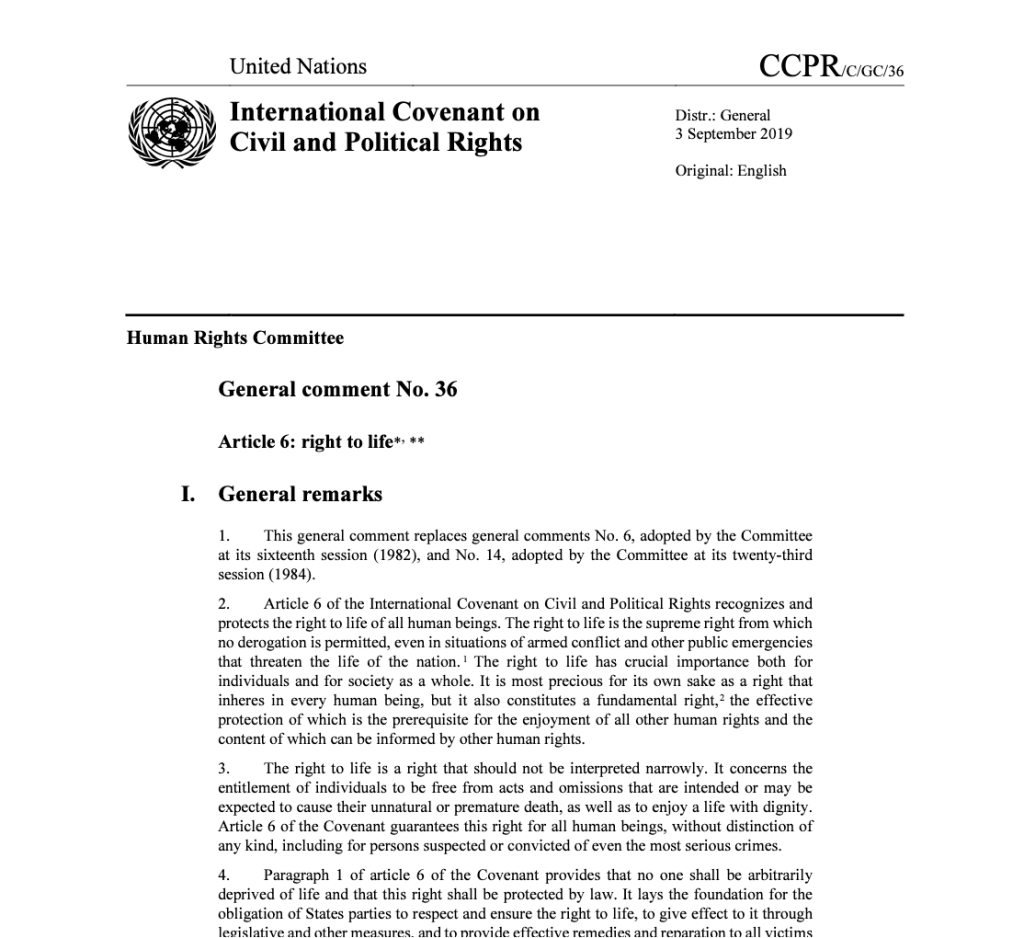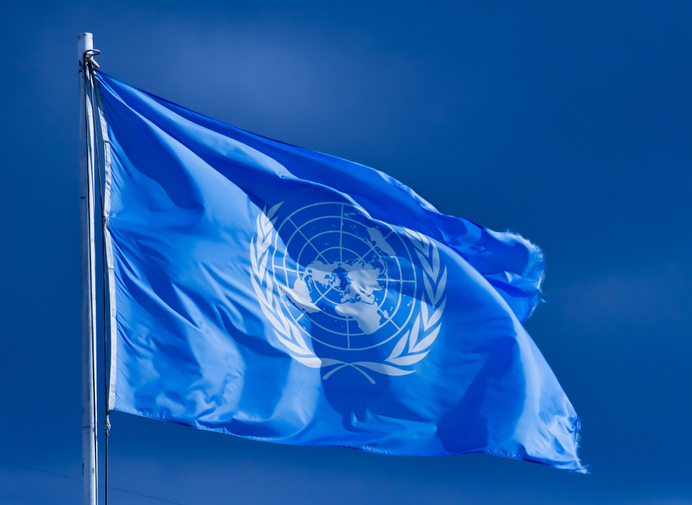Ashley Gate, Lawbore journalist, attended an event at the University of Westminster on the 13th March 2023 ‘The application of international human rights law to armed conflicts‘. (Ed. note: Delay in this excellent review being posted is down to me, not Ashley!) Here are her thoughts…
During a time of increasing instability in Europe, due to the onset of the Russian invasion of sovereign Ukrainian territory, the application of human rights within armed conflicts is front and centre in the minds of human rights lawyers and international humanitarian lawyers alike. Two practitioners were kindly invited to the University of Westminster Law School to discuss human rights in armed conflicts. I had the pleasure of hearing directly from international law Professor Yuval Shany of the Hebrew University of Jerusalem and Associate Professor of International Security and Law Dr. Anicee Van Engeland of Cranfield University. Alongside them was the humorous Dr. Marco Longobardo, who is a Senior Lecturer in International Law at the hosting university. He acted as a warm and welcoming chair for the discussion.

While much was questioned, discussed and contended during this Monday evening lecture, I would like to draw your attention to the United Nations General Comment no. 36, Article 6 (Right to Life), which Professor Shany helped create. Each treaty body of the United Nations publishes interpretations of its articles and provisions in the form of a ‘general comment.’ These general comments are often written by bodies of experts and this comment, in particular, was authored by a diverse group of state actors and individuals from civil society. General Comment no. 36 was published in 2019 by the UN Human Rights Committee (HRC), the body created by the UN to interpret and oversee the implementation of the 1966 International Covenant on Civil and Political Rights (ICCPR). Article 6 of the ICCPR focuses primarily on the ‘right to life’ and limitations which may be placed on that right.
Every human being has the inherent right to life. This right shall be protected by law. No one shall be arbitrarily deprived of his life.
ICCPR Article 6(1)
Some semblance of a right against arbitrary loss of life during times of conflict has existed for quite some time. The idea of restraint during times of war dates far before the drafting of the ICCPR, or the founding of the UN for that matter. The idea was implemented by president Abraham Lincoln during the American Civil War in the form of the Liber Code as he believed a shared future meant that restraint should be used in times of conflict. Such principles were the foundation for international humanitarian law which oversees actions that occur by states in times of conflict. This mentality was shared by the drafters of the United Nations, who aimed to reduce the amount of international armed conflict because we, as humankind, have a shared future on planet earth.

General Comment (GC) no. 36 progressively interprets the ‘right to life’ which is guaranteed by ICCPR article 6. Such progressive elements have yet to be fully embraced by the international community, something Professor Shany warns may be catastrophic if conflict levels continue to rise. Paragraph 63 of GC no. 36 argues for extraterritorial jurisdiction, meaning that a state should be liable if arbitrary deprivation of life by that state actor occurs — no matter if such deprivation of life occurs inside or outside of its own territory during an armed conflict. Basically, state actors should be held liable for damage inflicted even in proxy wars. Paragraph 63 continues by calling for the co-applicability of human rights law (HRL) and international humanitarian law (IHL), two sects of international law which are taught and managed separately within the academic world. The comment argues that contrarily to commonly held academic belief, HRL and IHL are complementary and not mutually exclusive.
Paragraph 64 of GC no.36 makes clear that states in conflict must announce whether less harmful alternatives of military operations were considered. While UN general comments are non-binding on states which are party to international treaties, Professor Shany explained that the idea behind this ‘call to action’ was to introduce a soft-law legal procedure which could lead to greater accountability for states in conflict. State practice has yet to implement these types of announcements.

Paragraphs 65 and 66 of GC no.36 focus on autonomous weapons development which includes drones and unmanned military machinery. The paragraphs caution that weapons development of this nature must be compatible with the ‘right to life’ granted by ICCPR article 6. They stress the need for the adoption of procedural obligations before the continued creation of autonomous weapons. The fear is that these weapons, as they lack ‘humanity’ will be unable to distinguish the extent needed to protect civilian infrastructure, livelihoods and lives. Paragraph 66 in particular calls for improved regulation of indiscriminate weapons, particularly biological and nuclear weapons. The section urges both state and non-state actors to stop the proliferation and acquisition of nuclear weapons as they are incompatible with respect for the ‘right to life.’

Paragraph 70 of GC no.36 should perk the ears of those following the conflict in Ukraine. The paragraph asserts that a war of aggression which is the most blatant example of an act of aggression by a state is a violation of the right to life, protected under article 6 of the ICCPR. Meaning that all the victims of a war of aggression would be protected under ICCPR article 6. Victims could include civilians and soldiers of both parties to the conflict. The state’s party to the ICCPR were deeply unhappy with paragraph 70 as it called for greater legal consequences when acts of aggression are committed. Professor Shany believes that now more than ever, it is deeply important to move the discussion towards possible legal consequences for aggressive state actions. This is due to the fact that the war instigated by Russia against Ukraine is a war of aggression.
While thorough and progressive, General Comment no.36 is not legally binding onto state parties of the ICCPR, though notably Russia and Ukraine are both ratifiers. I, for one, wonder about the extent of power international law actually has over state practice. Questioning such as this leads us to the Achilles heel of International law — its foundation relies on state consent. All works well until a State decides to stop playing by the rules. When a state goes rogue and withdraws from international human rights courts and treaties, what hope does international law have to stop them? To that end, even as multiple states conduct sanctions, international courts release arrest warrants, and civil-society members gear towards legal action against the rouge Russian state, the war rages on. While the ‘right to life’ is protected in times of conflict by international jurisprudence, one thing is for certain, this international human rights student is growing evermore disenchanted with the legal realm as the actions of nations continue to entirely disregard the law they themselves helped create.

Ashley Gate is a master’s in law student specialising in international Human Rights Law. With a previous background working as a medical aid during the onset of the Covid-19 pandemic back in United States, she has a keen eye for the intersectional aspects of health inequity.
Ashley has a passion for politics, history, and gardening. Ashley is a member of the 2022-23 Lawbore Journalist Team.

